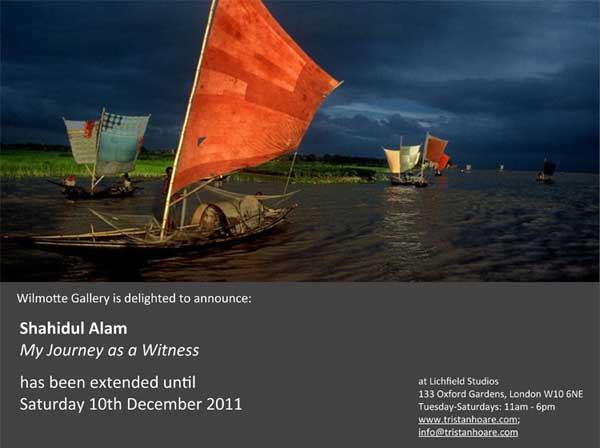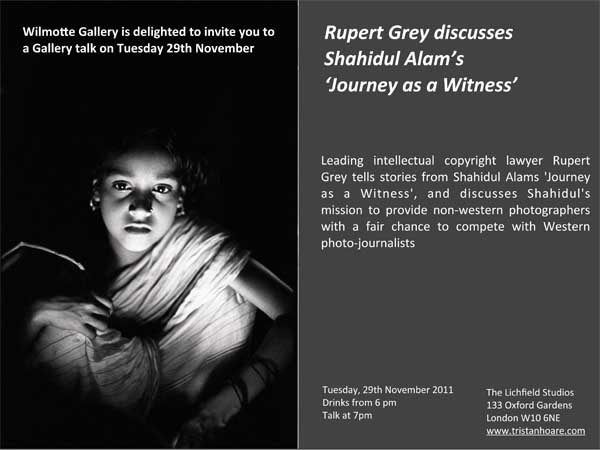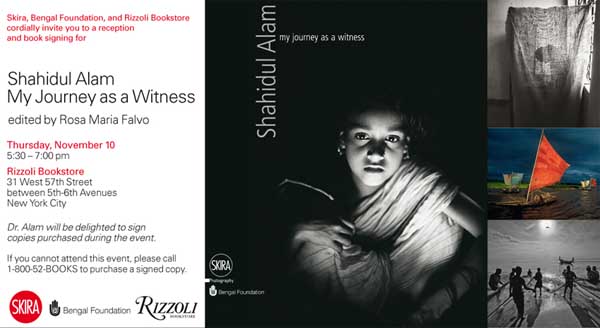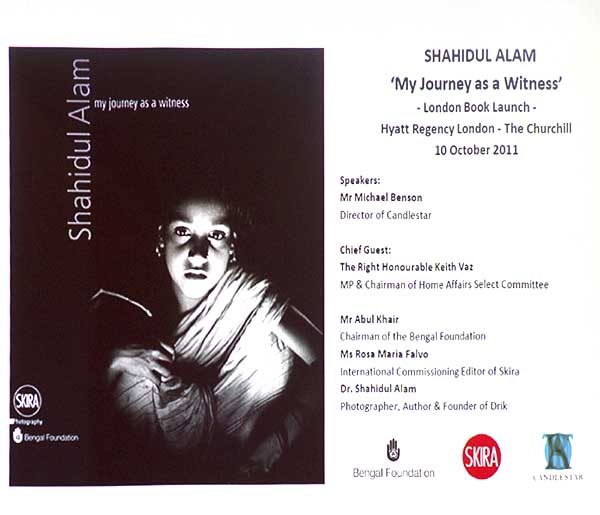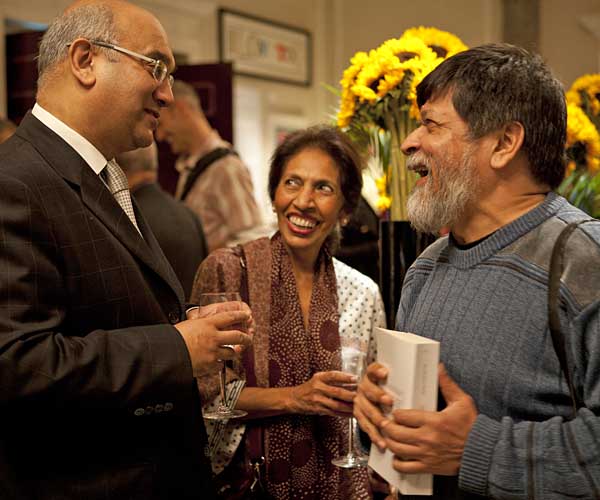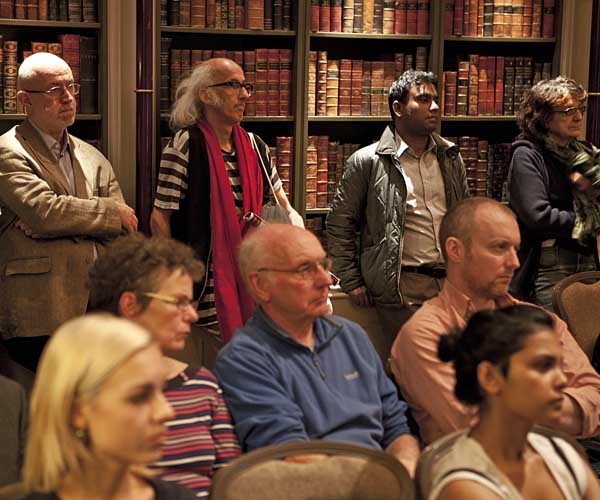Subscribe to ShahidulNews
Shahidul Alam?s ?My Journey as a Witness?: book excerpt and giveaway
Head on down past the fascinating opening essay from the book excerpted below, put together by curator and writer Rosa Maria Falvo, to find out how to win!
 Shahidul Alam, ‘Ilish fishing’. Image from book. ? Shahidul Alam.
Shahidul Alam, ‘Ilish fishing’. Image from book. ? Shahidul Alam.
Impossible is nothing
Few Westerners have any understanding of Bangladesh?s complicated history or even know exactly where it is on a map. And fewer still have experienced what this country has to offer. I first went there in 2008, travelling to Dhaka from Kolkata by bus across the Indian-Bangladeshi border at Benapole, and after our first ?luxury? bus ripped a hole in its undercarriage as the driver forced the ferry ramp prematurely, we jumped onto another making its way into the belly of a night ferry, crossing the Padma (?lotus?) River, the main channel of the great Ganges (Ganga) River originating in the Himalayas. Immediately surrounded by a smiling and curious crowd, it felt exhilarating to be suddenly thrust into the enduring dynamism that is daily life in Bangladesh. Washing over my vague but cemented notions of disaster and poverty, the reality for me was inspiring, within the chaos and calm combined. I have since travelled southwards to Chittagong?s great seaport, and then north into Bogra, through Dinajpur, visiting temples and monasteries, onto Rangpur, stopping for tea with indigo farmers, heading west to Thakurgaon, giving way to elephants on the village roads, and across India on our way to Biratnagar, Nepal. Increasingly, I am struck by the pervading ?impossible is nothing? approach to life here, and by the magnanimity of the people of Bangladesh.
We met a cheeky bearded man on a bicycle, busily navigating his schedule in a city that relentlessly thwarts any plans one might have to move promptly from A to B. To describe Dhaka?s serious traffic problems is to begin with sheer understatement, and yet the locals carry on undeterred. We walked into his photo agency full of energetic youth, with an obvious respect for their teacher, in positions of responsibility that showed they belong.
Working alongside Shahidul Alam is an extraordinary experience. There is no self-righteous arrogance, impatient hustling, or delusions of grandeur. Here is a true humanitarian; honest, hard-working, and committed to the cause; a talented man who is loved by many in a social, political and environmental system that is bursting at the seams; one that needs overhauling; and one he has been intimately engaged with for over thirty years. In the most unlikely conditions, with the odds (and sometimes the guns) pointed squarely against him, he manages to get the job done with a centeredness that inspires others to do the same. And what exactly is that job? Born from a simple premise and pitted against a seemingly impossible challenge, he dares to turn perceptions around and broaden our thinking, to rebalance the dynamics of communicative power, to redistribute imagery that impacts contemporary culture, and to respect geographic diversification. Not one to shy from the harshest realities in his country, which are best understood by those living them, Alam is educating for a new vision, which enlightened photography aspires to convey. If we consider the classic vehicles of social control, what happens when multinationals and politicians representing eight countries monopolise a world whose ?majority? often stands like an elephant tied to a rope? This majority will inevitably find its strength and something practical and peaceful can be done to help recognise it.




 ‘Ship breaking worker’ (portrait), Rahman Yard, Chittagong, Bangladesh, 2008. ? Shahidul Alam.
‘Ship breaking worker’ (portrait), Rahman Yard, Chittagong, Bangladesh, 2008. ? Shahidul Alam.
 ‘Hemayetpur peep hole’ (portrait), Hemayetpur, Pabna, Bangladesh, 1994. ? Shahidul Alam.
‘Hemayetpur peep hole’ (portrait), Hemayetpur, Pabna, Bangladesh, 1994. ? Shahidul Alam.
 ‘Champa: Naxalite series’ (portrait), Jessore, Bangladesh, 1994. ? Shahidul Alam.
‘Champa: Naxalite series’ (portrait), Jessore, Bangladesh, 1994. ? Shahidul Alam.
 ‘Girl in wheat field’ (portrait), Bangladesh, 1997. ? Shahidul Alam.
‘Girl in wheat field’ (portrait), Bangladesh, 1997. ? Shahidul Alam. 
